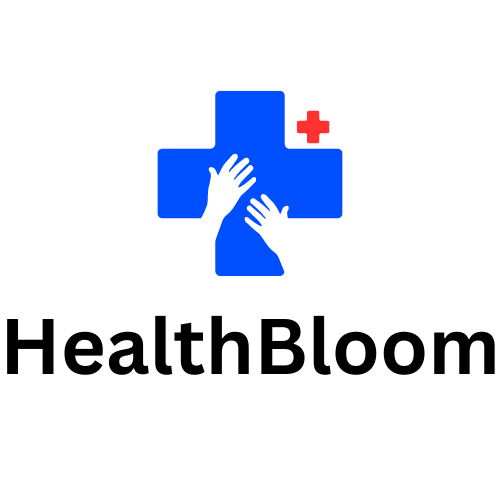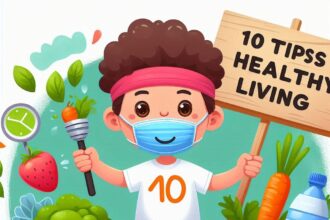Your health matters more than anything else, especially when you’re living with AIDS. Every meal you prepare is an opportunity to protect your body from harmful bacteria. This guide is designed to empower you with easy-to-follow food safety tips that help safeguard your health while still enjoying nutritious, delicious meals.
Ready to protect yourself? Let’s dive into these life-saving tips.
🌟 Quick & Powerful Food Safety Tips to Keep You Healthy
1️⃣ Keep It Fresh: Buy the Best, Store It Right
When you’re grocery shopping, you’re not just buying food—you’re investing in your health. Always select fresh produce and properly refrigerated or frozen items. Check expiration dates and avoid damaged packaging. Your body deserves the best, and by choosing fresh, you’re choosing safety.
🚨 Important: Make sure to refrigerate or freeze perishable items as soon as you get home to prevent bacteria from growing.
2️⃣ Deli Counter Dangers: Stay Alert
At the deli counter, it’s easy to overlook how often cross-contamination happens. Make sure the staff uses clean gloves or utensils when handling your food. Even cooked food can become dangerous if it touches raw meat or unclean surfaces.
💡 Pro Tip: Ask for your items to be placed in clean containers or bags to prevent any risk of contamination.
3️⃣ Check Packaging: Compromised Containers Can Mean Compromised Health
Have you ever noticed a can with a bulge or a jar with a broken seal? These are signs of potential danger. Always choose products with intact packaging and steer clear of any items with torn seals or damaged containers.
🔍 Safety Tip: Check that jars’ buttons are pressed down. If they click when you press them, they could be compromised.
4️⃣ Smart Storage: Keep Foods Cool to Stay Safe
Your refrigerator is your first line of defense against bacteria. Store perishable items like meat, dairy, and eggs in the coldest parts of the fridge. Avoid overstuffing your fridge, so cool air can circulate freely, keeping your food fresh and safe.
🧊 Bonus Tip: Store raw meats in sealed containers to prevent drips that could contaminate other foods.
5️⃣ Freeze It Right: Longer Shelf Life Without Compromise
Did you know freezing food halts bacterial growth? By keeping your freezer at 0°F, you extend the shelf life of your food without compromising safety. However, once thawed, food should be treated like any perishable item.
❄️ Pro Tip: Label your frozen items with the date you froze them to keep track of their freshness.
6️⃣ Pantry Power: Store Dry Foods Safely
For non-perishable foods like canned goods or pasta, keep them in cool, dry places. Avoid storing them near heat sources like stoves, ovens, or sinks, which can cause spoilage or contamination.
🛠️ Home Hack: Use airtight containers for dry goods like flour, rice, or pasta to protect against pests and moisture.
7️⃣ Clean Kitchen, Healthy You: Prioritize Hygiene
A clean kitchen isn’t just about appearance—it’s a matter of health. Wash your hands, utensils, and surfaces frequently, especially when handling raw foods. Clean cutting boards and knives with hot, soapy water, and sanitize countertops after meal prep to keep your kitchen safe.
🧽 Quick Tip: Consider using separate cutting boards for raw meats and vegetables to avoid cross-contamination.
8️⃣ Watch What You Eat When Dining Out
Dining out can be fun, but it can also be risky. Make sure your food is thoroughly cooked before eating. If something seems undercooked, don’t be afraid to ask for it to be re-cooked. Your health comes first, even when eating out.
🍽️ Health First: Avoid raw dishes like sushi or undercooked eggs. When in doubt, go for well-done!
9️⃣ Handle Leftovers with Care
Leftovers are great, but they can also become a breeding ground for bacteria if not handled properly. Make sure leftovers are stored in the fridge within two hours of cooking and reheat them thoroughly before eating.
♨️ Reheat Right: Use a food thermometer to ensure your leftovers reach 165°F when reheating.
🔟 Cooking Temperatures Matter: Don’t Guess, Be Sure
Cooking food to the right temperature kills harmful bacteria that can make you sick. Use a food thermometer to check the internal temperature of meats, eggs, and casseroles.
🌡️ Temperature Guide:
- Poultry: 165°F
- Ground meats: 160°F
- Seafood: 145°F
FAQs: Everything You Need to Know About Food Safety for AIDS Patients
1. Why is food safety so important for people with AIDS?
Living with AIDS weakens your immune system, making you more susceptible to food-borne illnesses. Taking extra care with how you handle and store food can help you avoid infections that could lead to severe health complications.
2. What are the signs of contaminated food?
Signs include a sour smell, strange color, or slimy texture. If the packaging is damaged or bulging, that’s also a red flag. When in doubt, throw it out—your health is far more important.
3. Can I eat raw vegetables and fruits?
Yes, but it’s crucial to wash them thoroughly under running water. Peel or cook them when possible, and avoid pre-cut fruits or veggies from the store as they may be more prone to contamination.
4. How can I make sure my kitchen stays safe?
Regularly clean your kitchen surfaces, tools, and hands. Use separate cutting boards for raw meat and vegetables, and always cook foods to the right temperatures. These simple steps can significantly reduce the risk of contamination.
5. How should I reheat leftovers safely?
Use a microwave or oven to reheat leftovers, and ensure they reach at least 165°F before eating. Stir the food to make sure it heats evenly throughout.
Empower Your Health Every Day
Taking charge of your food safety is one of the most important things you can do to protect your health. By following these simple but life-saving tips, you’re not just avoiding illness—you’re empowering yourself to live a healthier, happier life.
Every time you follow these steps, you’re prioritizing your well-being. You’ve got this—your health is worth every effort!
Final Thought: Your Health, Your Power
Every meal is a chance to make a safe, healthy choice. Remember, your well-being matters, and these precautions are small but significant steps toward ensuring that you stay strong and protected.






